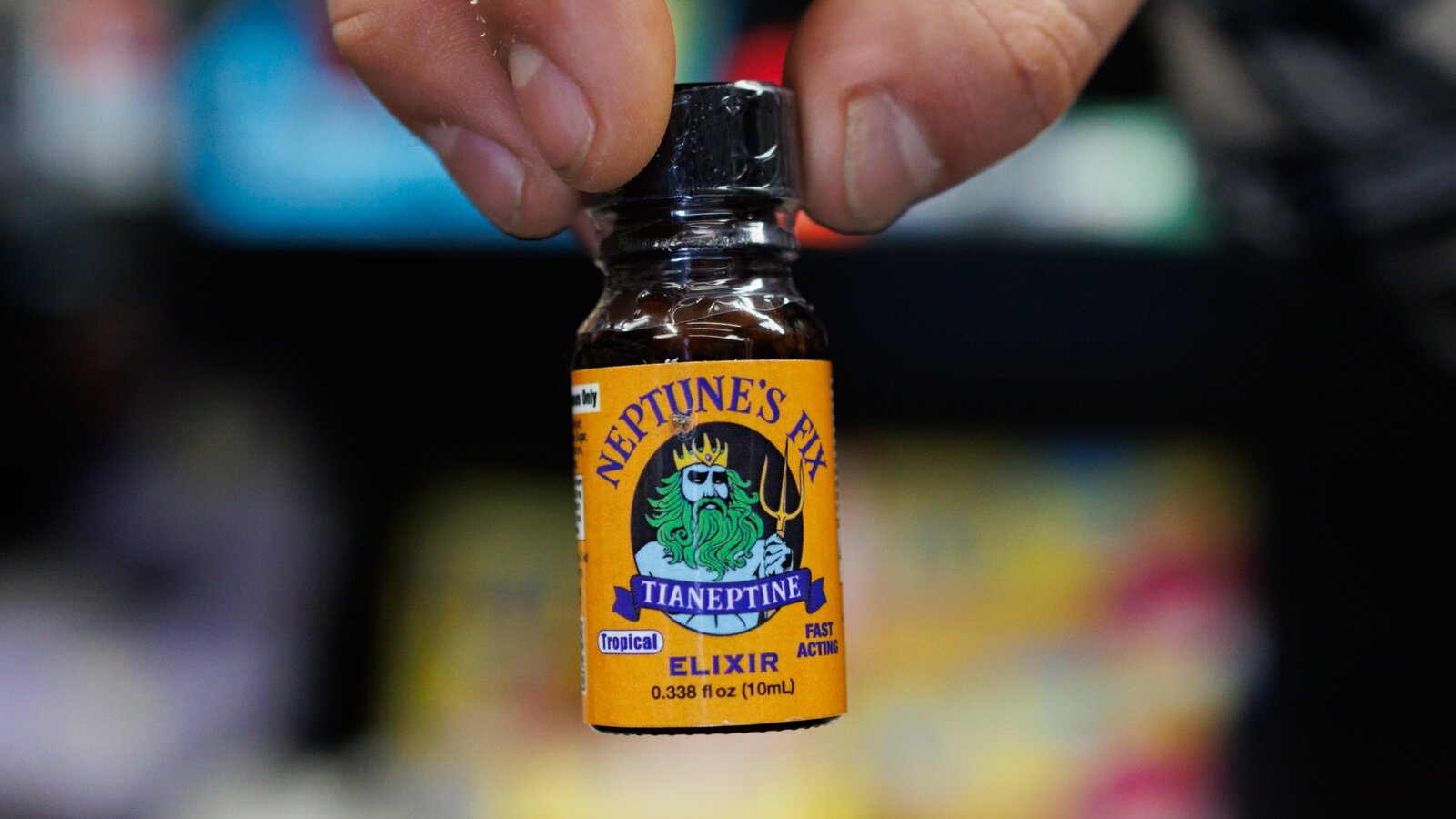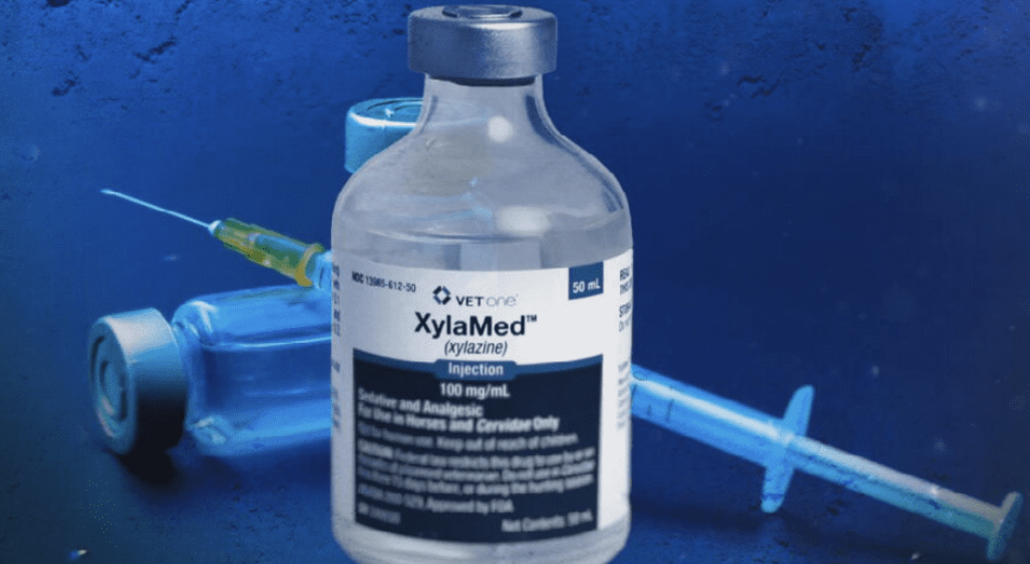Tianeptine is a controversial drug known for treating depression and anxiety, but it comes with significant risks. It’s not FDA-approved in the U.S., sparking concerns over its safety and potential for abuse. This article will discuss what to know about tianeptine, including its uses, risks, and legal status.
Key Takeaways
- Tianeptine is not FDA-approved in the U.S. and is often illegally marketed, leading to significant risks and potential for misuse.
- The drug exhibits a unique mechanism of action by modulating glutamate rather than serotonin, showing efficacy in treating depression but posing addiction risks similar to opioids.
- Withdrawal from tianeptine can mimic opioid withdrawal symptoms, and the drug has been linked to increased dependence and overdose cases, highlighting the need for caution and medical supervision.
Is tianeptine legal and safe to use?
The legal status of tianeptine varies widely across the globe. In the United States, it is not sanctioned by the FDA for any medical purposes, leading to the illegal marketing of products containing tianeptine. Despite this, it is often marketed online and in small shops, sometimes under different names, and sold as a dietary supplement. The lack of regulation has resulted in misleading claims about tianeptine’s efficacy in treating mental health issues and other conditions. This situation is further complicated by a significant rise in reported adverse effects, with poison control cases jumping from 11 to 151 between 2013 and 2020.
Internationally, tianeptine is legally available in various countries for medical purposes. However, misuse of tianeptine can lead to dependence, particularly when taken in higher doses. The risks associated with tianeptine often outweigh its therapeutic advantages, especially when combined with substances like opioids or alcohol, which can significantly heighten the risk of severe side effects, including cardiac issues.
Given these safety risks and the rising reports of misuse, the DEA has been considering further classification updates to control its distribution. While the potential benefits for treating anxiety disorders and depression are recognized, the overwhelming concern is the drugs’ potential for abuse and the severe health risks it poses.

What is tianeptine used for?
Tianeptine is utilized in various countries to manage anxiety, depression, and irritable bowel syndrome. As an atypical antidepressant, it has shown effectiveness comparable to other antidepressants like amitriptyline and fluoxetine. Despite this, its antidepressant tianeptine use in the United States remains unapproved, leading to off-label use and misuse as a nootropic or opioid alternative, including tianeptine sodium.
In smaller amounts, tianeptine may assist in reducing symptoms associated with anxiety and depression. However, the misuse of tianeptine as a cognitive enhancer or mood stabilizer without proper medical supervision can lead to significant health risks. This dual nature of being both a potential therapeutic agent and a substance of abuse places tianeptine within the broader context of drug addiction.
Brand names and formulations
Tianeptine is marketed under several brand names including Stablon, Coaxil, and Tatinol in different countries. In some regions, it is also sold as Tianeurax, Tynept, and Zinosal. In the United States, it is sometimes found under names like ZaZa or Tianna Red, often labeled as dietary supplements.
The drug is primarily available as a sodium salt, but can also be found in a slower-releasing sulfate formulation. Recent clinical trials have explored tianeptine hemioxalate extended-release tablets designed for once-daily usage. These variations in formulations allow for different dosing schedules and potentially different therapeutic effects, making it important for users to understand the specific type they are taking.
How does tianeptine work in the brain?
Tianeptine acts by modulating glutamatergic neurotransmission, which plays a crucial role in neuroplasticity and depression. Unlike traditional antidepressants, tianeptine does not inhibit serotonin uptake or noradrenaline uptake, suggesting a unique action mechanism. Instead, it normalizes stress-induced changes in glutamate levels in brain regions associated with mood regulation.
Furthermore, tianeptine’s ability to enhance synaptic plasticity in the hippocampus is linked to its antidepressant properties and cognitive benefits. Key aspects of its action include:
- Preventing stress-induced dendritic remodeling in neurons, which is associated with improved resilience against depressive symptoms.
- Reducing glutamate release in certain brain regions.
- Facilitating glutamate action in other brain regions.
This distinct profile underscores its unique method to treating depression through European psychiatry therapy.
What are the side effects and risks of tianeptine?
Tianeptine can potentially lead to dangerous health issues, including overdose and death, especially when misused. The short-term side effects and long-term consequences of misuse are significant and can impact users’ health severely. Misuse often leads to dependence, withdrawal symptoms, and a heightened risk of overdose when combined with other substances.
Understanding the risks associated with short-term and long-term use is crucial for anyone considering tianeptine. The following subsections will delve deeper into these side effects, providing a clearer picture of what users might experience.

Short-term side effects
Short-term side effects of tianeptine include:
- Nausea
- Dizziness
- Confusion
- Drowsiness
- Mood swings
- Dry mouth
- Headaches
These side effects can vary in intensity and duration, often depending on the daily dose and individual response to the medication.
Such symptoms highlight the importance of using tianeptine under medical supervision to mitigate these risks. The unpredictability of these side effects can lead to discomfort and additional health complications if not properly managed.
Long-term consequences of misuse
Chronic misuse of tianeptine may result in symptoms similar to those seen in tramadol addiction, such as agitation and muscle pain. Furthermore, long-term misuse can lead to severe health complications, including respiratory issues, cognitive impairments, and a potential for overdose. The dependency created by prolonged use can significantly disrupt an individual’s social and occupational life, leading to broader issues beyond physical health, including opioid use disorder.
Understanding these long-term risks is essential for anyone using or considering using tianeptine. The potential for addiction and severe health consequences underscores the importance of using this drug responsibly and under strict medical guidance.
What does tianeptine withdrawal feel like?
Withdrawal from tianeptine can result in symptoms akin to those experienced during opioid addiction, including anxiety, nausea, and tremors. Common withdrawal symptoms also include:
- myalgia
- chills
- vomiting
- mood changes
- insomnia
- gastrointestinal distress
These symptoms can be severe, making the withdrawal process challenging for many users.
Patients undergoing tianeptine withdrawal may also experience tachycardia and hypertension alongside psychological symptoms. Management of tianeptine withdrawal often involves treatments similar to those used for opioid withdrawal, including benzodiazepines and fluids.
Most withdrawal cases reported improved symptoms within 24 to 48 hours with appropriate management in this case report.
Is tianeptine addictive?
Tianeptine has been identified as having addictive properties similar to those of opioids. Between 2014 and 2019, reported cases of tianeptine abuse increased significantly, with a noted 24-fold rise. Prolonged use of tianeptine can lead to withdrawal symptoms and a potential dependency similar to opioid addiction.
Individuals who misuse tianeptine often combine it with other drugs, which significantly raises the risk of overdose and aligns with patterns seen in polysubstance abuse. The combination of regular use may lead to a tolerance, necessitating higher doses to achieve the same effects.
Common side effects of tianeptine abuse can include severe drowsiness, confusion, and in extreme cases, death.
How does tianeptine compare to traditional antidepressants?
Tianeptine is often noted for its unique mechanism, which differs from traditional antidepressants that primarily target serotonin levels. Unlike SSRIs and SNRIs, tianeptine acts on the glutamate system, not just serotonin pathways. This distinction may contribute to its rapid onset of action and different side effect profile.
However, tianeptine’s potential for misuse and the risks associated with its use highlight significant differences compared to traditional antidepressants. The following subsections will explore its effectiveness in major depressive disorder and how it impacts patient compliance and tolerability.
Effectiveness in major depressive disorder
Clinical studies indicate that tianeptine may provide rapid relief from depressive symptoms, comparable to traditional antidepressants. Tianeptine has demonstrated significant efficacy in treating major depressive episodes, showing a response rate of 58% compared to 41% for placebo in clinical studies. In a study comparing tianeptine to imipramine, tianeptine was found to be more effective than placebo, with 56% of patients responding positively to tianeptine.
Three double-blind placebo-controlled trials have confirmed the effectiveness of tianeptine for major depression, including in patients with melancholic features. The overall results from multiple studies suggest that tianeptine is a safe and effective option for managing major depressive disorders.
Tolerability and patient compliance
Tianeptine is often better tolerated than many traditional antidepressants, leading to higher rates of patient compliance. It has a low risk of adverse effects, making it more tolerable for patients compared to many traditional antidepressants. Patients taking tianeptine typically report fewer cognitive and psychomotor side effects than those on SSRIs or tricyclic derivatives.
However, the rapid elimination of tianeptine necessitates strict adherence to dosing schedules that are administered to maintain effectiveness. Tianeptine’s pharmacokinetic profile allows for easier dose titration, which can enhance patient compliance in treatment.
Elderly patients on tianeptine may require dose adjustments due to potential differences in drug metabolism.
Why is tianeptine sometimes called “gas station heroin”?
Tianeptine has been labeled as “gas station heroin” due to its misuse potential and the ease of access to the drug at convenience stores. Reports indicate that some users can develop a dependence on tianeptine, similar to traditional opioids, which is why it’s often compared to heroin. The nickname reflects the alarming trends of individuals using tianeptine for its euphoric effects, akin to opioid substances, raising concerns about its safety and legality.
The media coverage and regulatory response to this issue have highlighted the dangers of unregulated chemical supplements sold at gas stations. These products often contain tianeptine, leading to dangerous recreational use and significant health risks.
Where is tianeptine banned or restricted?
In several nations, tianeptine is controlled or restricted due to its potential for abuse and addiction. The FDA has not approved tianeptine for any medical use in the United States, leading to its availability mainly as an unregulated product. Certain countries have modified tianeptine’s prescribing guidelines and required warnings on labels concerning addiction risks.
Despite being illegal in some jurisdictions, tianeptine is often sold in convenience stores and online. The classification and legal status of tianeptine can vary significantly between countries, affecting its availability.
What to do if someone is misusing tianeptine?
Recognizing the signs of tianeptine misuse is crucial for timely intervention. Look for symptoms like:
- Severe drowsiness
- Confusion
- Mood swings If someone is exhibiting these signs, it’s important to seek help immediately. In cases of severe misuse, individuals may experience withdrawal symptoms similar to opioid withdrawal, including:
- Anxiety
- Nausea
- Muscle pain.
Treatment options for tianeptine misuse often involve medical detox and behavioral therapies. Management of withdrawal symptoms is typically similar to opioid withdrawal treatment, necessitating the use of medications like benzodiazepines and fluids. In critical cases, patients may require close monitoring in intensive care units, with treatments including naltrexone or naloxone for respiratory depression.
Early intervention and professional medical support can significantly improve outcomes for individuals struggling with tianeptine misuse.
Bottom Line: What to know about tianeptine
Tianeptine is a complex drug with potential benefits for treating anxiety and depression but also significant risks of misuse and addiction. Its unique action mechanism, different from traditional antidepressants, makes it an interesting yet controversial option in the medical field. However, the lack of FDA approval in the U.S. and the rise in misuse cases highlight the need for caution and regulation.
Understanding the uses, risks, and safety of tianeptine is crucial for making informed decisions. While it holds promise as a therapeutic agent, the risks of addiction and severe health consequences cannot be ignored. Always consult with a healthcare professional before considering any treatment involving tianeptine. Awareness and education are key to navigating the complexities of this powerful drug.
FAQs about tianeptine
Is tianeptine over the counter?
Tianeptine is not available over-the-counter in the U.S. and is typically sold online or as a dietary supplement.
Is tianeptine FDA-approved?
Tianeptine is not FDA-approved for any medical use in the United States. This means its safety and efficacy have not been officially recognized by regulatory authorities.
Can tianeptine cause euphoria?
Yes, tianeptine can cause euphoria at high doses, increasing its potential for abuse and addiction.
What are the common side effects of tianeptine?
Common side effects of tianeptine include abdominal pain, dizziness, and dry mouth, along with potentially more severe symptoms such as nausea and confusion. It's important to monitor for these effects during treatment.
Is tianeptine addictive?
Tianeptine can indeed be addictive and has properties similar to opioids, leading to potential dependency and withdrawal symptoms. It's important to use it with caution.















